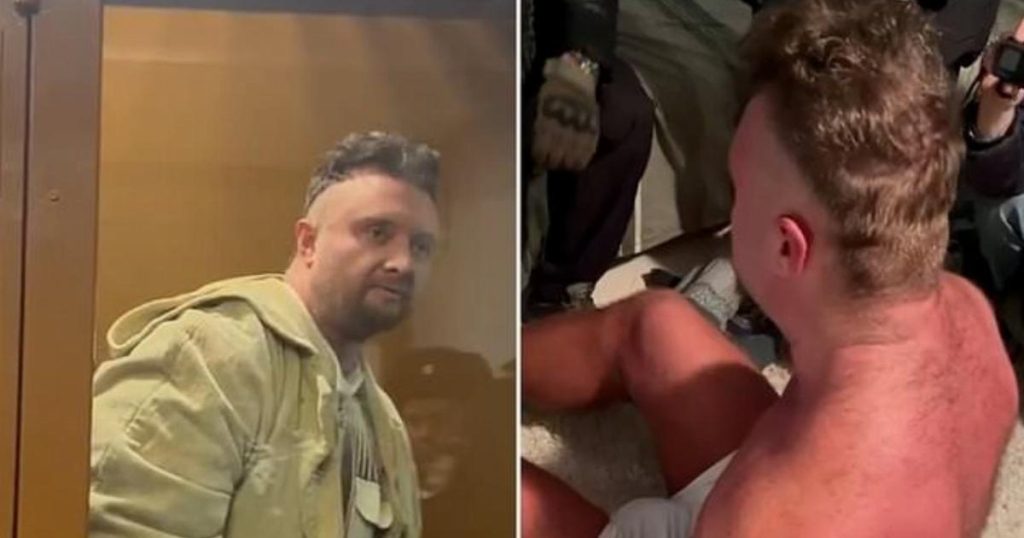The Suspicious Death of Andrey Kotov: A Case Study in Russia’s Crackdown on LGBTQ+ Rights
Andrey Kotov, a 48-year-old Russian travel agent, was found dead in his cell at the Vodnik pre-trial detention center in Moscow on a fateful morning. His lawyer confirmed the news to OVD-Info, a prominent Russian legal aid group, sparking immediate concern and suspicion. Kotov, director of the travel agency Men Travel, had been arrested in November 2024, accused of participating in an "extremist" organization. The charges stemmed from his organization of LGBTQ+-focused trips, including a New Year’s trip to Egypt and a Volga River cruise. Kotov vehemently denied any wrongdoing, asserting that his tours were ordinary tourist excursions and not platforms for extremist activities. Despite his pleas, he faced a potential eight-year prison sentence. The circumstances surrounding his death remain shrouded in mystery, with an investigator initially reporting suicide as the cause. However, news agency RIA Novosti quoted police sources alleging “cuts” on Kotov’s body, raising questions about the true nature of his demise. The Investigative Committee, a federal law enforcement body, launched an inquiry, with the possibility of charges for negligence and incitement to suicide against the Russian prison service (FSIN) and Kotov’s cellmates.
Kotov’s arrest was dramatic, involving a midnight raid on his Moscow home. He later testified in court, describing how approximately 15 individuals forced their way into his apartment, subjected him to physical violence, including blows to his face and legs, leaving him bruised and shaken. He emphasized his lack of resistance, highlighting the unexpected and brutal nature of the intrusion. Video footage of the raid depicted Kotov handcuffed and in his underwear while being interrogated by uniformed officers. Despite the aggressive tactics employed during his arrest, Kotov steadfastly maintained his innocence, emphasizing that his travel agency organized standard tourist itineraries, including boat trips and fishing excursions. He explicitly denied any involvement in extremist activities or the promotion of extremist ideologies. However, the Golovinsky District Court of Moscow ordered him remanded into custody, citing "intentional and illegal" actions driven by "selfish reasons" to maximize his company’s profits. The court’s press release did not specify the alleged extremist association Kotov was linked to but accused him of spreading "LGBTQ+ ideology."
Disturbingly, reports from friends indicate that Kotov was subjected to harsh conditions during his detention. He was held in solitary confinement for 15 days, denied access to necessary medication, and deprived of warm clothing. These allegations underscore the increasingly hostile environment faced by LGBTQ+ individuals in Russia. Kotov’s case is not an isolated incident but rather a symptom of Russia’s escalating crackdown on LGBTQ+ rights, particularly in the wake of the war in Ukraine. Under President Vladimir Putin’s leadership, the government has intensified its efforts to uphold what it deems "traditional values," using this justification to target and suppress LGBTQ+ expression and visibility. While homosexuality itself is not illegal in Russia, "gay propaganda" is outlawed, creating a chilling effect on LGBTQ+ advocacy and community-building. The restrictions extend even to adoption, with Russian children barred from being adopted by citizens of countries where transgender individuals can legally change their gender.
The climate of fear and discrimination has tangible consequences for LGBTQ+ Russians. A survey conducted by the advocacy group Coming Out revealed that nearly nine in 10 LGBTQ+ individuals reported a noticeable increase in homophobic and transphobic attitudes within the past year. The survey further revealed a sharp rise in violence against LGBTQ+ people, with nearly 45% reporting experiencing violence in 2023, a significant increase from 30% the previous year. Kotov’s death raises serious questions about the safety and well-being of LGBTQ+ individuals in Russia’s detention system. The allegations of torture during his arrest, the denial of basic necessities during his confinement, and the questionable circumstances surrounding his death paint a grim picture of the treatment of those perceived as challenging the government’s narrative on "traditional values."
The ongoing investigation into Kotov’s death must be thorough and impartial to determine the truth behind his demise. International human rights organizations and governments must pressure Russia to ensure accountability for any wrongdoing and to protect the rights of LGBTQ+ individuals. The crackdown on LGBTQ+ rights in Russia is part of a broader trend of shrinking civic space and increasing repression. Independent media outlets have been silenced, political opposition has been marginalized, and human rights defenders face increasing harassment and persecution. Kotov’s case illustrates the human cost of these policies and the urgent need for international action to safeguard fundamental freedoms in Russia.
The Russian government’s narrative of protecting "traditional values" often serves as a smokescreen for discriminatory practices and human rights violations. It is crucial to expose and challenge this rhetoric, emphasizing the universal nature of human rights and the importance of protecting the rights of all individuals, regardless of their sexual orientation or gender identity. Kotov’s death should serve as a wake-up call to the international community. It is a stark reminder of the vulnerability of LGBTQ+ individuals in Russia and the urgent need to uphold human rights principles in the face of increasing authoritarianism. The world must not stand idly by while fundamental freedoms are eroded and individuals like Andrey Kotov face persecution and ultimately, lose their lives.











